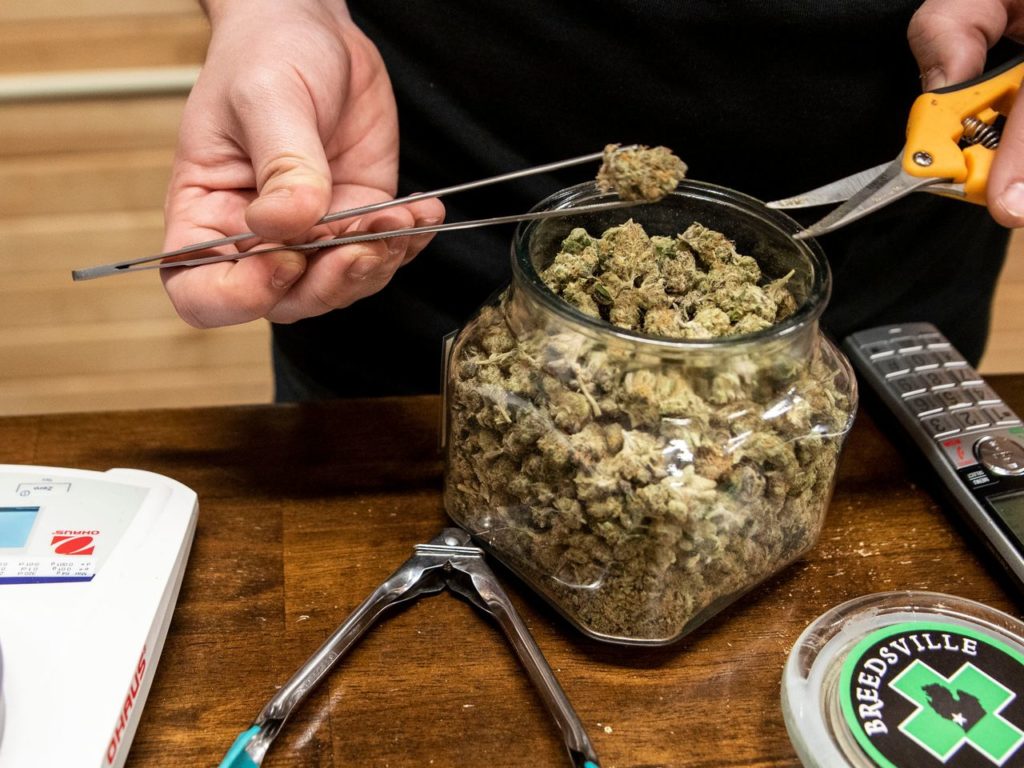Syracuse.com
The Office of Cannabis Management this afternoon eliminated its marijuana testing limits for bacteria, yeast and mold – this after conditional marijuana growers voiced concern that the majority of them can’t pass the strict rules required by the state and therefore wouldn’t be able to get their product onto store shelves to open the market.
An OCM email sent to cultivators on Tuesday announced: “The Office has updated its Laboratory Testing Limits document to remove the pass/fail limits associated with the Total Viable Aerobic Bacteria Count and Total Yeast and Mold Count for unextracted cannabis products (e.g. cannabis flower, pre-roll, etc.).”
The agency went on to say that labs will still need to run these tests, but “there will not be a defined limit for unextracted cannabis products in the adult-use program.”
“It is the responsibility of the licensee to consider these results and any impact to the stability and expiration dating of the product, as well as any risks to the health of consumers,” the office said.
One week ago, Dan Livingston, the executive director of the Cannabis Association of New York, told NY Cannabis Insider that the association, which is comprised of hundreds of growers and processors, had “every faith that the OCM is going to recognize the existential threat” the testing limits pose to cultivators and this year’s harvest.
Yet, at the time, the OCM reiterated the standards for total yeast and mold – less than 10,000 colony-forming units (CFU) per gram of flower, or 1,000 CFU per gram of extract – and didn’t say whether the office planned on changing those limits.
OCM did not provide a comment on this story by publication, but we will update this article if they do.
“This is a step in the right direction for the success of this new market,” said Aaron Leentjes, a conditional cultivator and co-founder and owner of UNIFI Cannabis. “Because growers were not given an option to cultivate outdoors, it’s nice to see OCM adjusting their testing guidelines to be more in line with the realities of outdoor cultivation.”
However, not everyone thinks loosening the limits is a good idea.
“This will allow farmers to move more product onto the marketplace, but inevitably will open a can of worms in regards to the standards, quality, and expectations that customers would have for the flower and products they are looking to purchase in dispensaries within New York State,” said Colin Decker, a cannabis industry consultant and owner of Hudson Valley-based Sensei Growth Consulting.
“This sets the bar even lower for the end-product quality due to growers not having to meet such stringent requirements to get their products sold,” Decker said.
The OCM said in its email that “not all analytes are required to be tested at this time and will phase in as the permitted laboratories receive final approval on testing methods.”
According to the agency, moisture content, filth/foreign material, and water activity will not be a required type of testing until after Jan. 1, 2023. Testing for residual solvents and terpenes will be required after March 1, 2023.
H/T: www.syracuse.com



